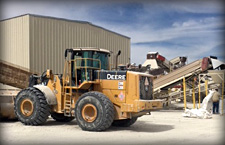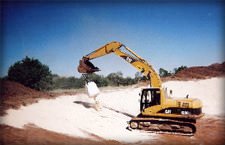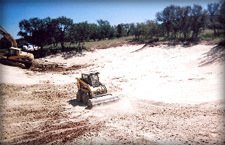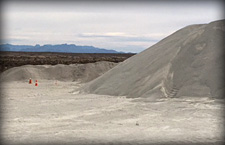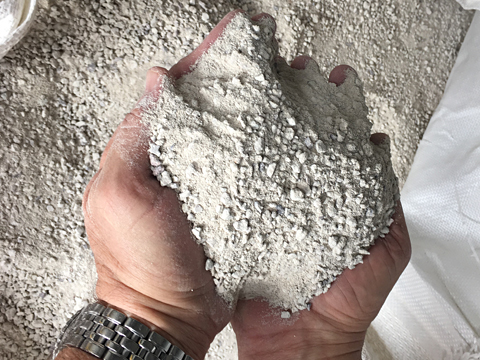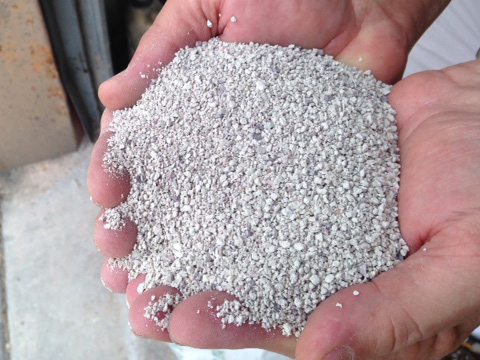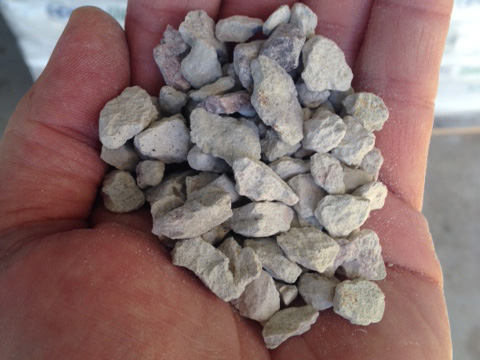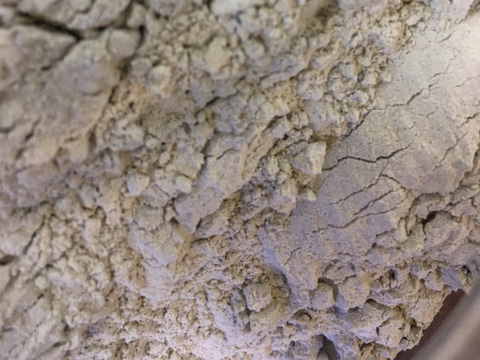Sodium Bentonite Uses and Applications

At Southwestern Materials, we take pride in the fact that we are experts in our industry. This is particularly important when it comes to understanding sodium bentonite uses and products because of the variety of options. Bentonite plays a vital role in applications such as well drilling, geotechnical surveys, iron ore manufacturing, landfill lining, and much more. Whatever our customer’s needs may be, they can rest assured that we will be able to provide customized advice and specific products needed for their particular sodium bentonite uses.
If you would like to learn more about the various sodium bentonite uses, you have come to the right place. Read on below or for more detailed information, please give us a call at 512-280-7801 toll free @ 888-600-6077. We look forward to hearing from you, and being your reliable Texas bentonite supplier.
Sodium Bentonite Uses: Sealing
Many of the various sodium bentonite uses take advantage of bentonite’s ability to create an impermeable layer that prevents substances from leaching through from one side to the other. In this way, sodium bentonite is an effective natural sealant for many applications. These include:
- Pond Sealing – Sodium bentonite use generally plays an important role in making sure that pond beds don’t allow water to seep out. Ideally, the bentonite is applied to the bottom of the pond before it is constructed or after the pond has been drained and allowed to dry. Bentonite has the added advantage of not being toxic to aquatic life, humans, or other animals.
- Retention Ponds – In a similar manner, another sodium bentonite use is to prevent seepage in retention ponds. This allows these ponds to work in the desired manner, whether to store rain water for later use in irrigation or to trap potential flood water and allow it to be dispersed more slowly.
- Liquid Retention Ponds (Non-Hazardous and Hazardous) – While sodium bentonite is helpful when it comes to retaining simple rain or pond water in their allotted basins, sodium bentonite use also plays a key role when it comes to dealing with more hazardous materials. Here, the pond sealant abilities of the bentonite help to confine hazardous materials in specific locations, preventing toxic or other problematic substances from leeching out of these areas and potentially into aquifers underneath or surrounding land. One example of this is in the use of sodium bentonite in mining operations.
- Sewage Lagoons – Another similar example of sodium bentonite use involves sewage lagoons. As the name suggests, these are essentially ponds that are filled up with sewage. These collection points allow algae and bacteria to break down the sewage over time. Once the waste water has been properly treated, it may be reintroduced into the surrounding environment. However, it is imperative for the lagoon to be watertight so that its contents do not contaminate the surrounding area. This is where sodium bentonite use has an important part to play.
- Landfill Liner Caps – Sodium bentonite uses for sealing are not limited just to ponds and similar water features. Bentonite is also important in the construction of landfills. It helps prevent substances in the garbage at these locations from leaking into the areas underneath and around the landfill.
Sodium Bentonite Uses: Plugging, Binders and More
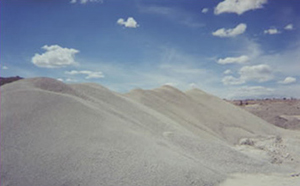
Additionally, sodium bentonite uses go beyond sealing off ponds and landfills. There are many other ways to take advantage of how this clay absorbs water and expands in size, among bentonite’s other properties. Some additional uses include:
- Hole Plug-Seismic and Geo-Tech Plugging – The holes that are drilled in order to undertake seismic or geotechnical exploration and operations can be plugged by sodium bentonite use. The plug helps to direct the energy from the charge downward to better maximize the information gained. Bentonite is also used to fully seal the borehole to prevent contamination of ground water from above.
- Drilling Mud – Another of sodium bentonite uses is the ability to create a slurry-like substance when added to water. Among other applications, this is very important when drilling for oil and in similar operations. It helps keep the drilling equipment lubricated and prevents overheating. It also moves cuttings upward, away from the drill itself. Furthermore, bentonite helps to stabilize the hole, preventing it from collapsing and also preventing seepage from taking place.
- Wastewater Treatment – In addition to being used to contain wastewater and prevent it from leeching out, another of sodium bentonite’s uses is during the treatment process itself. This is because this clay has the ability to absorb various contaminants, such as oil, grease, paint, dye, trace metals, and more.
- Sand Casting / Foundries – Another of the many sodium bentonite uses relates to creating molds to be used in the casting of metal. The bentonite-sand mixture allows these molds to be strong enough to handle the extremely high temperatures involved.
- Feed Binder – Another sodium bentonite use is as a component in the feed of poultry and other animals. The bentonite helps to make the food pellets stronger, so they are less likely to become lumped or mashed together. In addition, the bentonite slows down the passage of the feed through the animal’s digestive system, allowing for better absorption of nutrients by the animal while also helping to remove ammonia and various toxins.
Learn More Sodium Bentonite Uses and Benefits
These are just some of the many sodium bentonite uses. For more detailed information on how sodium bentonite can help you, please do get in touch with us at 512-280-7801 toll free @ 888-600-6077. We would be happy to answer any questions about what a bentonite supplier like us can do for you.

